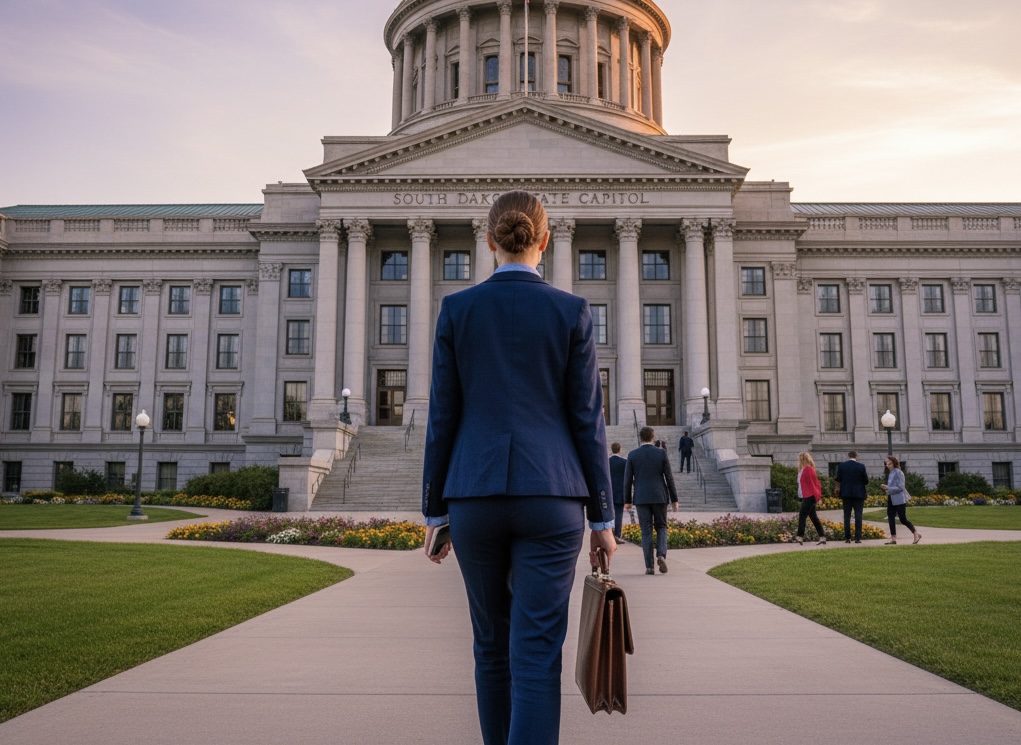Samantha Bradsky – October 30
In a major step toward protecting children online, a legislative committee in South Dakota endorsed a proposal requiring age verification to access sites hosting p.rnography.
It was not an easy road to get here.
Back in 2017, the South Dakota legislature unanimously asserted that pornography is a public health crisis in Senate Resolution 4. They recognized porn leads to a “broad spectrum of individual and public health impacts and societal harms.” In early 2024, Rep. Bethany Soye and Sen. Red Dawn Foster spearheaded House Bill 1257, which would have required an age-verification system on explicit websites hosting material South Dakota law would consider “harmful to minors.” The House passed the bill. South Dakota’s children were one step closer to being protected from a lucrative industry that fuels violence, abuse, mental health issues and a distorted view of romantic relationships—to name a few.
When HB 1257 moved to the senate for approval, South Dakota’s Senate ended up killing it, sparking outrage amongst lawmakers and residents.
What followed was the interim study committee set in place to delve into the topic further and a contentious back-and-forth. Now, nearly eight months later, the Study Committee on Artificial Intelligence and Regulation of Internet Access by Minors made the endorsement decision at its final meeting on Wednesday, October 23.
“The summer study confirmed what we knew all along, that porn sites need to be held accountable for targeting children,” Rep. Bethany Soye (R-Sioux Falls) said. “It is unfortunate that we had to spend thousands of dollars and leave our children unprotected for an entire year to come to this conclusion, but I am excited to finally get these protections in place.”
The measure, likely to be introduced in 2025, is nearly identical to HB1257 with a couple of minor changes.
Sen. Helene Duhamel, a Republican and a member of the interim committee who took part in killing the original bill, said of the newly approved language, “My goal all along was to find something that is constitutional and enforceable.”
The first minor change was to the definition section. The committee changed the definition for which websites the regulation applies to. Instead of requiring any website that, in its “regular course of trade or business,” publishes material harmful to minors, the committee specified that the regulation only applies to websites where more than 33% of the platform’s content is harmful to minors.
“Harmful material” is defined as content that “predominantly appeals to the prurient, shameful, or morbid interest.” This adjustment, which mirrors the Texas law currently under Supreme Court review, comes with its own set of legal questions to be answered.
The other amendment struck language that would have allowed for violations of the age verification to be classified as deceptive trade practices.
Rep. Soye, who initially supported the broader age verification mandate, is still optimistic about the endorsed bill, noting the success of similar laws in other states. “It has proven to be effective in 19 other states and it will protect the children of South Dakota from the predatory pornography industry,” she said.
Rep. Soye ultimately voted to advance the bill.
The similarly aligned Texas law includes fines of up to $10,000 per violation with fines up to $250,000 involving minors.
While the adult entertainment industry has unsurprisingly voiced opposition to the bill, arguing that it infringes on free speech by requiring users to submit personal data, proponents counter that the age verification is a reasonable safeguard. The bill’s privacy measures, which prevent companies from retaining ID information, implement age verification without overreaching into users’ personal lives.
As South Dakota’s legislative body prepares to review the bill, it stands poised to join a growing list of states taking a stand on age verification. If passed, this law would not only enhance protections for minors but also establish South Dakota as one of the leaders in the nationwide effort to promote safe, responsible internet use for the next generation.






